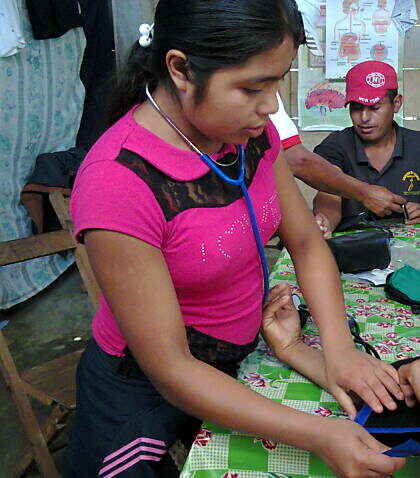
For many indigenous rural villages, supporting community healthcare providers is a rooted in traditional healthcare systems that have existed for milennia. However, with modernity, communities are losing some of their traditional practices, often becoming dependent on pharmaceuticals and urban hospitals as opposed to traditional medicine. In these environments, due to persistent and brutal racism, indigenous people are not well-attended.
In Zapatista villages part of construction their autonomy –in order to be free of a system that does not care about poor people, or people at all–, the community chooses a volunteer to train to become the local ‘healthcare promoter’. The volunteer uses both traditional knowledge and modern medicine and participates in continuing education in workshops and encuentros at Zapatista-organized regional health centers. The healthcare promoter is based out of a community-built casa de salud (house of health) which is located in the village. Because the she/he is a known member of the community, they are already familiar and trusted by the community and able to provide an invaluable service.
Since the pandemic, communities in resistance look to the Zapatista model of taking back their healthcare and supporting the education of community promoters. As with healthcare practitioners everywhere, ongoing study and practice for emergent conditions and advancements in knowledge is simply a part of the work.
Over these many decades, Schools for Chiapas’ work with health promoters has included support and facilitation for educational workshops on herbal medicine, preparations, and nutrition. We support autonomous health centers with equipment, supplies, and educational materials as needed. We also maintains a fund, known as the Ramona Fund, to provide financial support for emergency medical response, which directly saves lives.
In 2024, we continue our work with health promoters in Zapatista territory and organized communities to extend resources and knowledge sharing. This year, we are excited to be working with coastal communities in herbal medicine and prevention workshops also! Stay tuned for more details!
You can support our work in this area with a Gift of Change!
